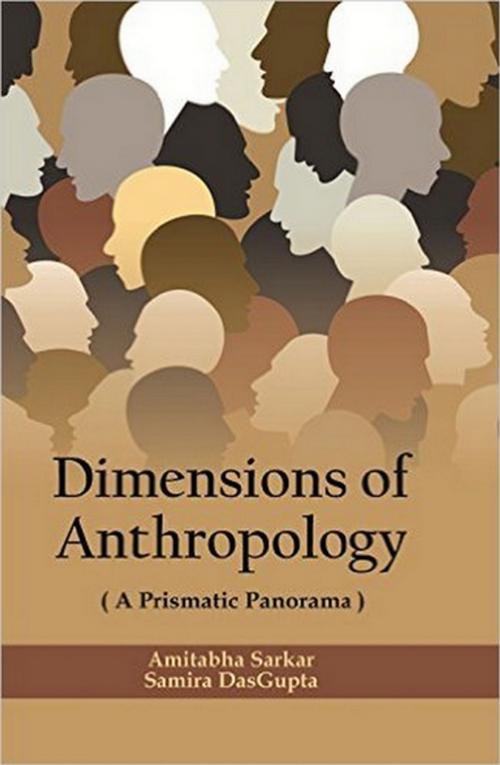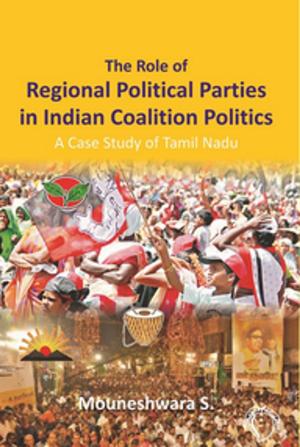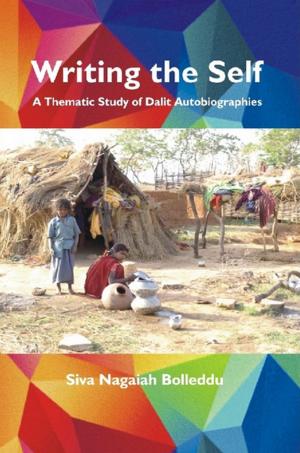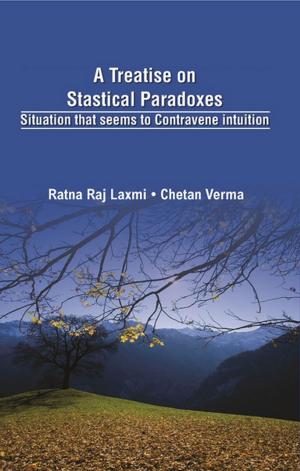Dimensions of Anthropology
A Prismatic Panorama
Nonfiction, Science & Nature, Science, Biological Sciences| Author: | Amitabha Sarkar, Samira Dasgupta | ISBN: | 9789351289845 |
| Publisher: | Kalpaz Publications | Publication: | June 30, 2016 |
| Imprint: | Kalpaz Publications | Language: | English |
| Author: | Amitabha Sarkar, Samira Dasgupta |
| ISBN: | 9789351289845 |
| Publisher: | Kalpaz Publications |
| Publication: | June 30, 2016 |
| Imprint: | Kalpaz Publications |
| Language: | English |
Anthropology is the study of man in a holistic way. One fundamental necessity of anthropological research is the exercise to keep the studies out of any bias or pre-conceived, value- loaded thought, which in turn calls for a rigid exclusion of value judgements. Chemist devotes himself or herself to the understanding of the elements and analyses their behavior in relation to each other at the laboratory, similarly, an anthropologist observes, describe and analyses the contextual situation in the field which is considered as his laboratory. Initially anthropologists devoted their cornerstone to ethnography. Ethnographic study is the base line studies and thereafter by churning and amassing ethnographic data, problem oriented or focused results can be achieved. The present volume is fully concentrated on author's various empirical studies carried out byAnthropological Survey of India for the last 35 years since 1977. The varied dimensions of anthropological research works are taken into consideration for the present volume. The communities involved in this research work are Toto from West Bengal, Birjia, Asur and Mal Paharia of Jharkhand, Abujh Maria, Muria, Bhatra, Dhurwa and Halba etc tribal population from Chhattisgarh,Dhodia of Gujarat and Bhil of Udaipur , Rajasthan and also from the Sundarbans. The present treatise contains the following dimensions of anthropology, –apart from development of anthropology as an academic discipline, its methodology and development of thoughts, the other dimensions are- kinship system, social organization, social stratification, application of anthropological knowledge regarding concept of space, cultural ecology,concept of ethnoscience among Indian tribes, culture and adaptation,study of traditional knowledge for sustainable living, folk medicine,culture and communication through signal, sign and symbol, ethnicity and identity, religion, cultural synthesis, art and culture and concepts of understanding social-cultural change. More so, this book can help students, NGO's, planners cum local administrators to gain an insight into anthropology which in turn can equip them with a holistic approach for developmental programmes at micro levels in the tribal dominated areas of the country under specific fields of study, function or operations.
Anthropology is the study of man in a holistic way. One fundamental necessity of anthropological research is the exercise to keep the studies out of any bias or pre-conceived, value- loaded thought, which in turn calls for a rigid exclusion of value judgements. Chemist devotes himself or herself to the understanding of the elements and analyses their behavior in relation to each other at the laboratory, similarly, an anthropologist observes, describe and analyses the contextual situation in the field which is considered as his laboratory. Initially anthropologists devoted their cornerstone to ethnography. Ethnographic study is the base line studies and thereafter by churning and amassing ethnographic data, problem oriented or focused results can be achieved. The present volume is fully concentrated on author's various empirical studies carried out byAnthropological Survey of India for the last 35 years since 1977. The varied dimensions of anthropological research works are taken into consideration for the present volume. The communities involved in this research work are Toto from West Bengal, Birjia, Asur and Mal Paharia of Jharkhand, Abujh Maria, Muria, Bhatra, Dhurwa and Halba etc tribal population from Chhattisgarh,Dhodia of Gujarat and Bhil of Udaipur , Rajasthan and also from the Sundarbans. The present treatise contains the following dimensions of anthropology, –apart from development of anthropology as an academic discipline, its methodology and development of thoughts, the other dimensions are- kinship system, social organization, social stratification, application of anthropological knowledge regarding concept of space, cultural ecology,concept of ethnoscience among Indian tribes, culture and adaptation,study of traditional knowledge for sustainable living, folk medicine,culture and communication through signal, sign and symbol, ethnicity and identity, religion, cultural synthesis, art and culture and concepts of understanding social-cultural change. More so, this book can help students, NGO's, planners cum local administrators to gain an insight into anthropology which in turn can equip them with a holistic approach for developmental programmes at micro levels in the tribal dominated areas of the country under specific fields of study, function or operations.















